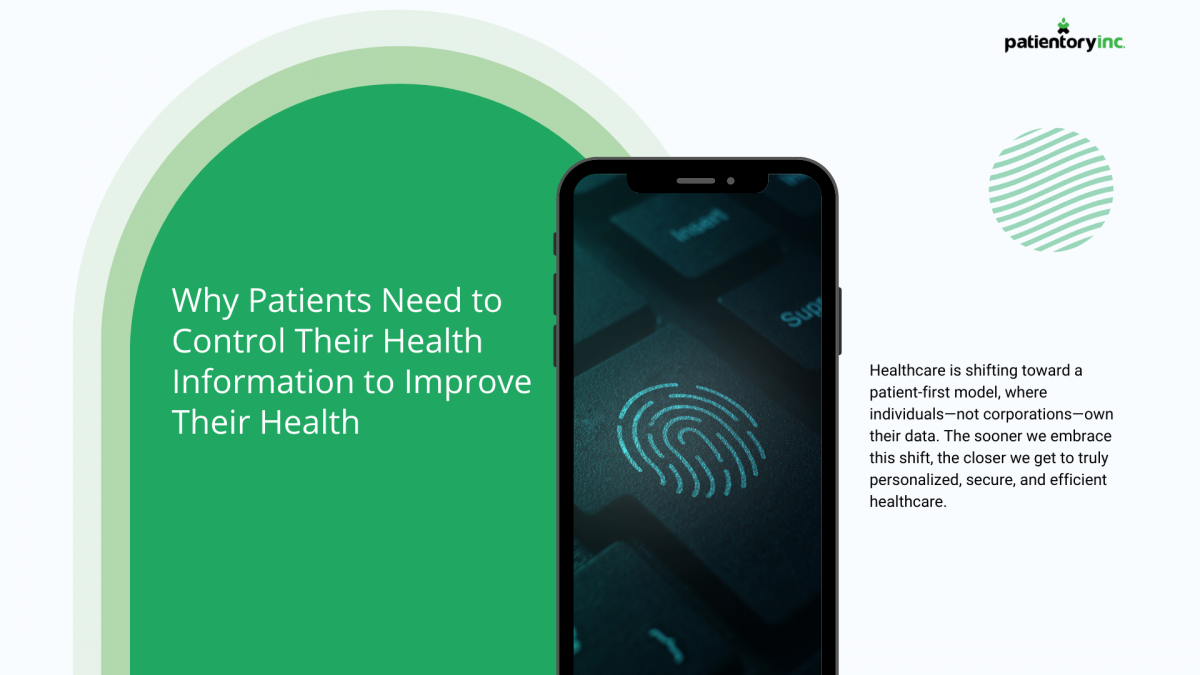In today’s fast-evolving digital world, data is power—and nowhere is this more evident than in healthcare. Every day, your health information is collected, stored, and shared across electronic health records (EHRs), wearable devices, and telehealth platforms. But here’s the real question: Who actually owns your health data?
For too long, hospitals, insurance companies, and third-party providers have controlled patient data, often restricting access, limiting transparency, and sometimes even profiting from it. In an age of artificial intelligence (AI), blockchain, and personalized medicine, it’s more critical than ever for patients to take control of their own health data.
The Problem: Lack of Patient Data Ownership
Many patients assume they have full access to their medical records, but the reality is quite different. Here are the key issues:
- Fragmented Medical Records – Your health data is scattered across different hospitals, clinics, and labs, making it difficult to get a complete picture of your health history.
- Limited Access – Many healthcare providers still charge fees or place restrictions on how much data patients can access.
- Data Monetization Without Consent – Some healthcare institutions sell anonymized patient data to pharmaceutical companies and research organizations without patient knowledge.
- Security & Privacy Risks – Data breaches in healthcare are on the rise, leaving sensitive information vulnerable to cybercriminals.
Why Patient Data Ownership Matters
When patients own and control their own health data, they gain:
✔ Greater Transparency – No more hidden records; you have full visibility into your health history.
✔ Improved Care Coordination – You can share your complete medical history with any provider, ensuring faster, more accurate diagnoses and treatments.
✔ Personalized Healthcare – AI-driven analytics can help you make informed decisions about your health and well-being.
✔ Enhanced Privacy & Security – You decide who can access your data and how it’s used, reducing risks of unauthorized sharing.
✔ Monetization Opportunities – With blockchain-based platforms, patients may have the ability to own and profit from their own health data, instead of third parties.
The Role of Blockchain in Patient Data Ownership
Blockchain technology is revolutionizing healthcare data management by giving patients secure, decentralized access to their medical records. Through encrypted, tamper-proof systems, blockchain allows patients to:
🔹 Store their health records securely in one place
🔹 Share data instantly with healthcare providers without intermediaries
🔹 Maintain full control over who accesses their data and for what purpose
🔹 Contribute to medical research on their own terms
How to Take Control of Your Health Data Today
💡 Request Your Medical Records – Under HIPAA, you have the legal right to access your full health records. Ask your healthcare provider for a copy.
💡 Use Secure Health Apps – Look for blockchain-powered health platforms that allow you to store and control your data.
💡 Be Mindful of Data Sharing – Read privacy policies before signing up for apps or telehealth services.
💡 Advocate for Patient-Centric Policies – Support legislation and initiatives that promote patient data ownership.
The Future of Patient Data Ownership Starts Now
Healthcare is shifting toward a patient-first model, where individuals—not corporations—own their data. The sooner we embrace this shift, the closer we get to truly personalized, secure, and efficient healthcare.
Are you ready to take control of your health data? The future of digital health belongs to you.
#PatientData #DigitalHealth #Blockchain #HealthTech #AIinHealthcare #PrivacyMatters
